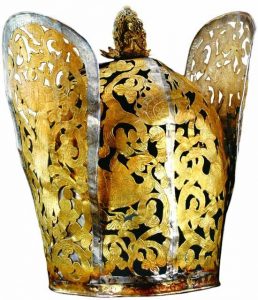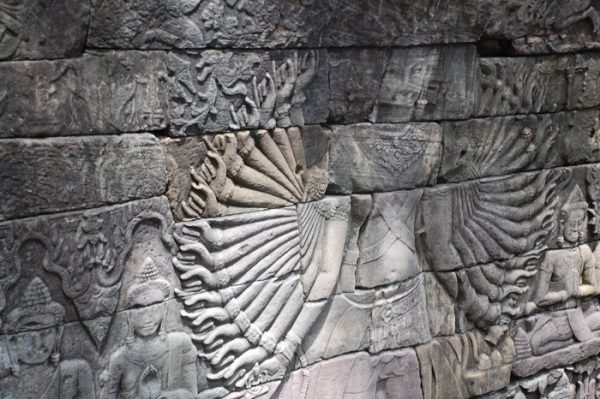 Blue Cliff Record, Case 48
Blue Cliff Record, Case 48
When Minister Wang entered Chao Ch’ing, they were making tea. At the time Elder Lang was holding the kettle for Ming Chao. Lang turned the tea kettle over.
Seeing this, the Minister asked the Elder, “What’s under the tea stove?”
Lang said, “The spirit who holds up stoves.”
The Minister said, “If it’s the spirit who holds up stoves, why then did you turn over the tea kettle?”
Lang said, “Serve as an official for a thousand days, lose it in a single morning.”
The Minister shook out his sleeves and left.
Ming Chao said, “Elder Lang, you’ve eaten Chao Ch’ing food, but still you go beyond the river to make noise gathering charred wood.”
Lang said, “What about you, Teacher?”
Ming Chao said, “The spirit got the advantage.””
Hsueh Tou said, “At the time I just would have kicked over the tea stove.”
As soon as I chose this koan to talk about his morning, I thought perhaps I’d made a mistake. I went online looking for other teachings on this case, to weigh my thinking on it against what others have had to say.
A talk by Koun Yamada, the author of the translation of the Gateless Gate we use here at Treetop, was the only one I could find, and after reading it, it became clear to me that he did so only because he was working his way through the entire Blue Cliff Record. Here’s what he had to say about this case: “This koan, to be quite frank, is neither very interesting nor much of an aid in our practice.”
I hope this ringing endorsement helps you keep your expectations for this talk in perspective.

 Blue Cliff Record, Case 2
Blue Cliff Record, Case 2 Book of Serenity, Case 97
Book of Serenity, Case 97


 It is a cold morning in late January. Since wood is the only source of heat I use at this time of year I need to grab my hat and coat and head out to the woodpile in order to warm my home. As I feel the cool air I pause momentarily, realizing my relationship to the cold, the warmth of the fire and the wood. It is a relationship as old as the first humans who gathered by a fire to keep safe and ward off the chill of the night. Now, as then, if I don’t go out and return with my sling of wood, it will be a long cold day. In this simple relationship, my actions have a direct and immediate consequence.
It is a cold morning in late January. Since wood is the only source of heat I use at this time of year I need to grab my hat and coat and head out to the woodpile in order to warm my home. As I feel the cool air I pause momentarily, realizing my relationship to the cold, the warmth of the fire and the wood. It is a relationship as old as the first humans who gathered by a fire to keep safe and ward off the chill of the night. Now, as then, if I don’t go out and return with my sling of wood, it will be a long cold day. In this simple relationship, my actions have a direct and immediate consequence.
 This weekend I met our new neighbors. I recently purchased 10 acres of mature forest land on the slopes of a small mountain in northeastern Vermont. The property is fairly remote, being off grid and on a road that is not plowed in winter. There are only a few buildings along the three miles of the road that is drivable during the summer and fall and most of those are seasonal camps. Only two households reside here year-round.
This weekend I met our new neighbors. I recently purchased 10 acres of mature forest land on the slopes of a small mountain in northeastern Vermont. The property is fairly remote, being off grid and on a road that is not plowed in winter. There are only a few buildings along the three miles of the road that is drivable during the summer and fall and most of those are seasonal camps. Only two households reside here year-round.